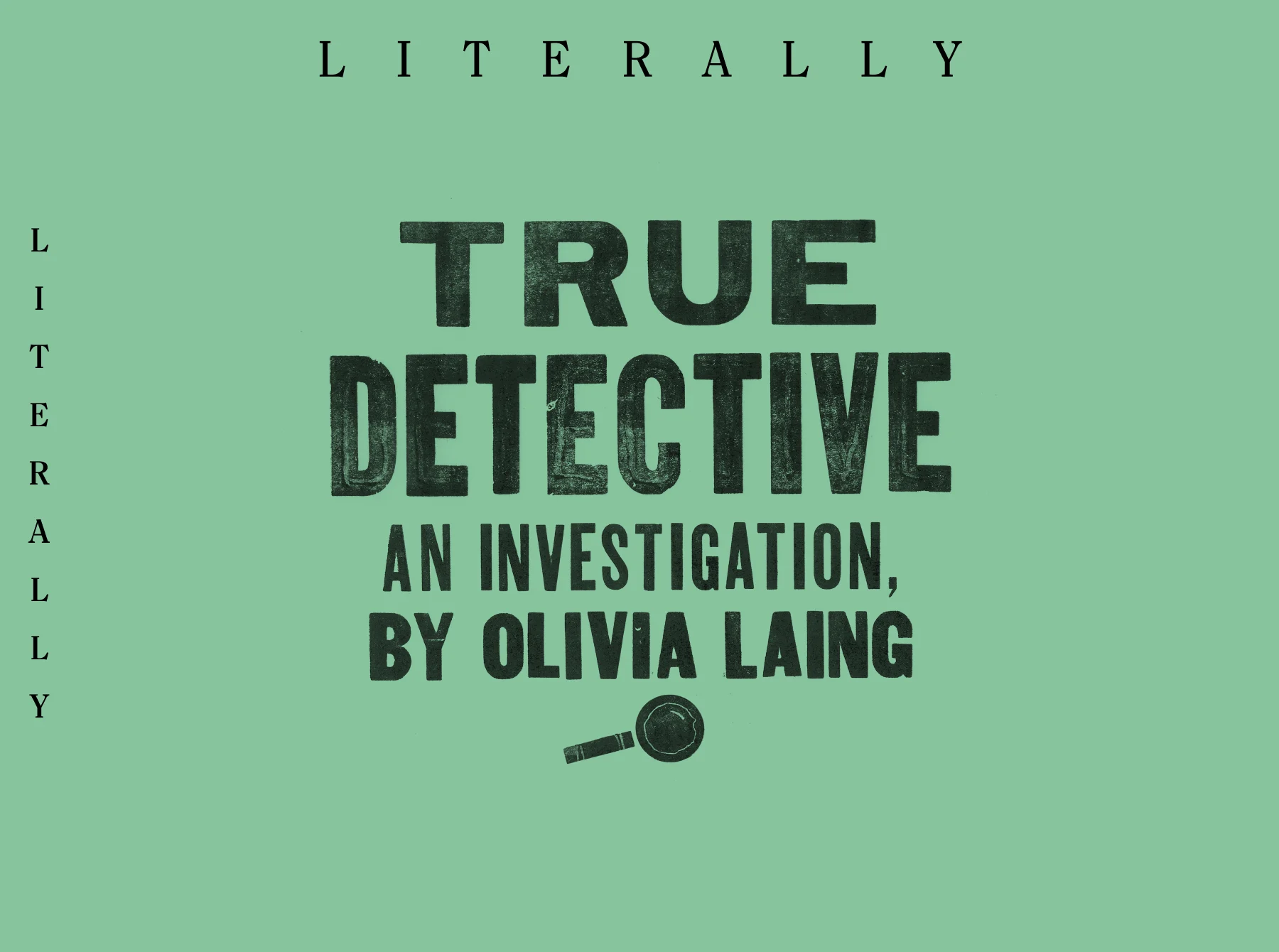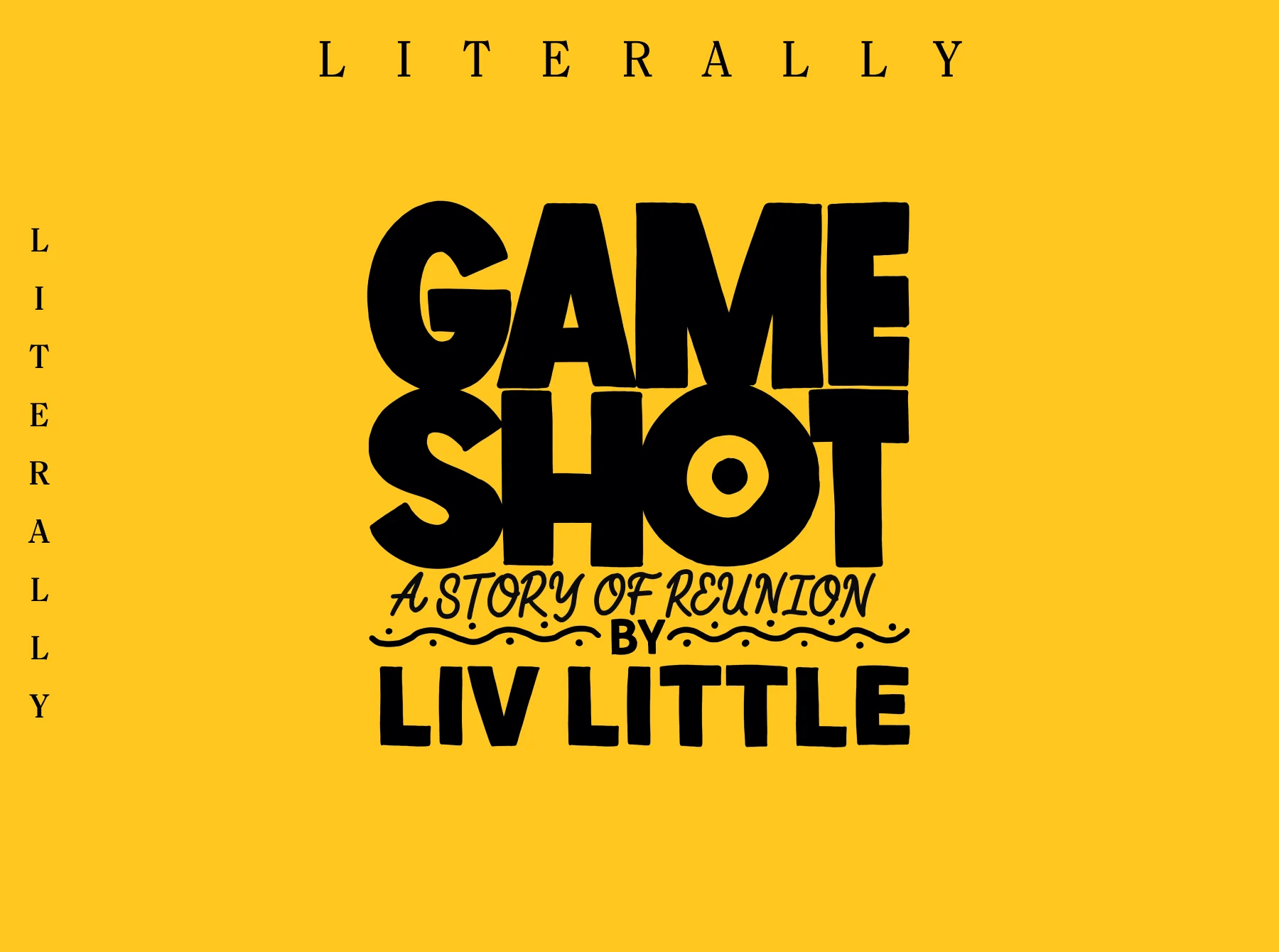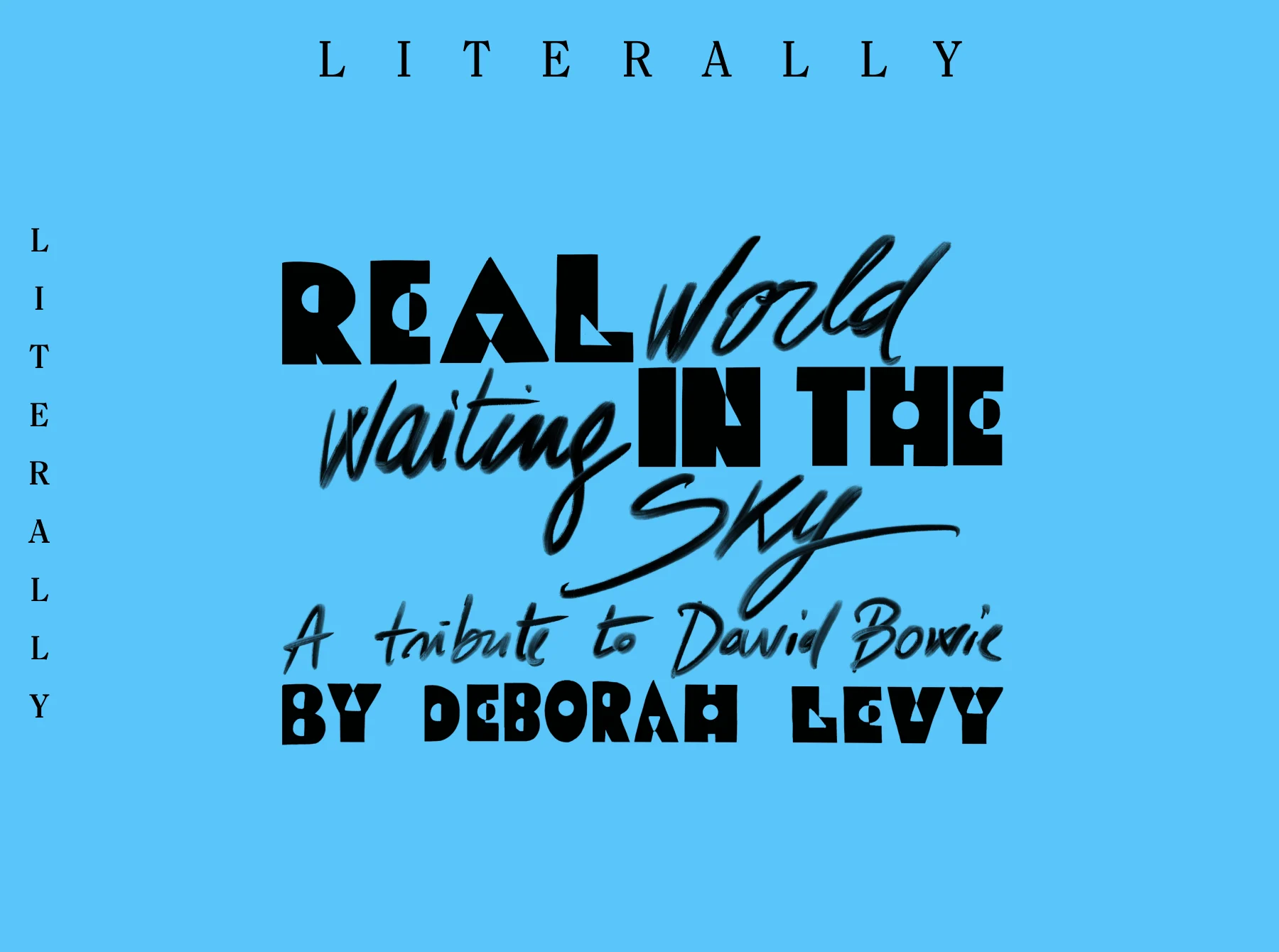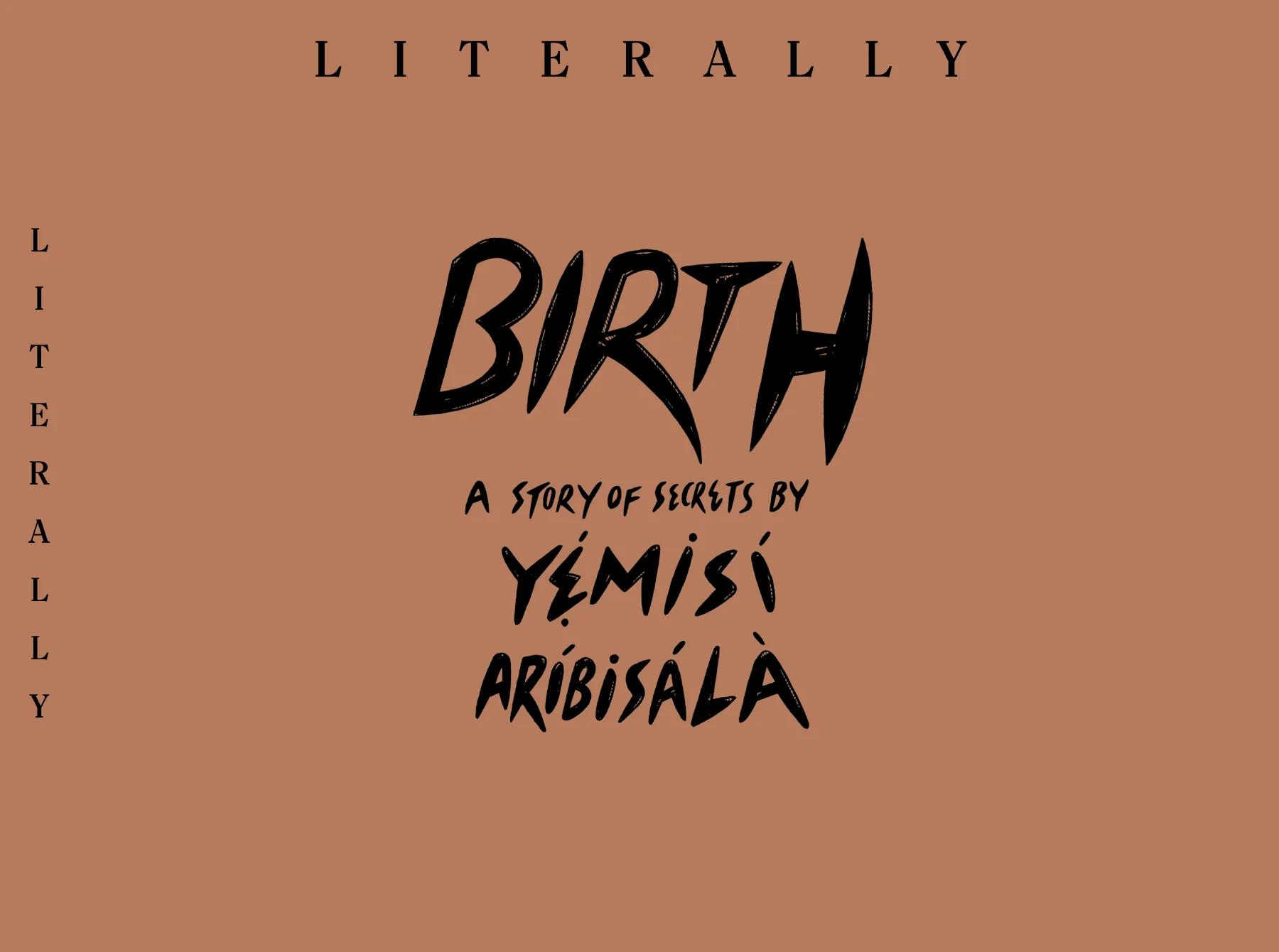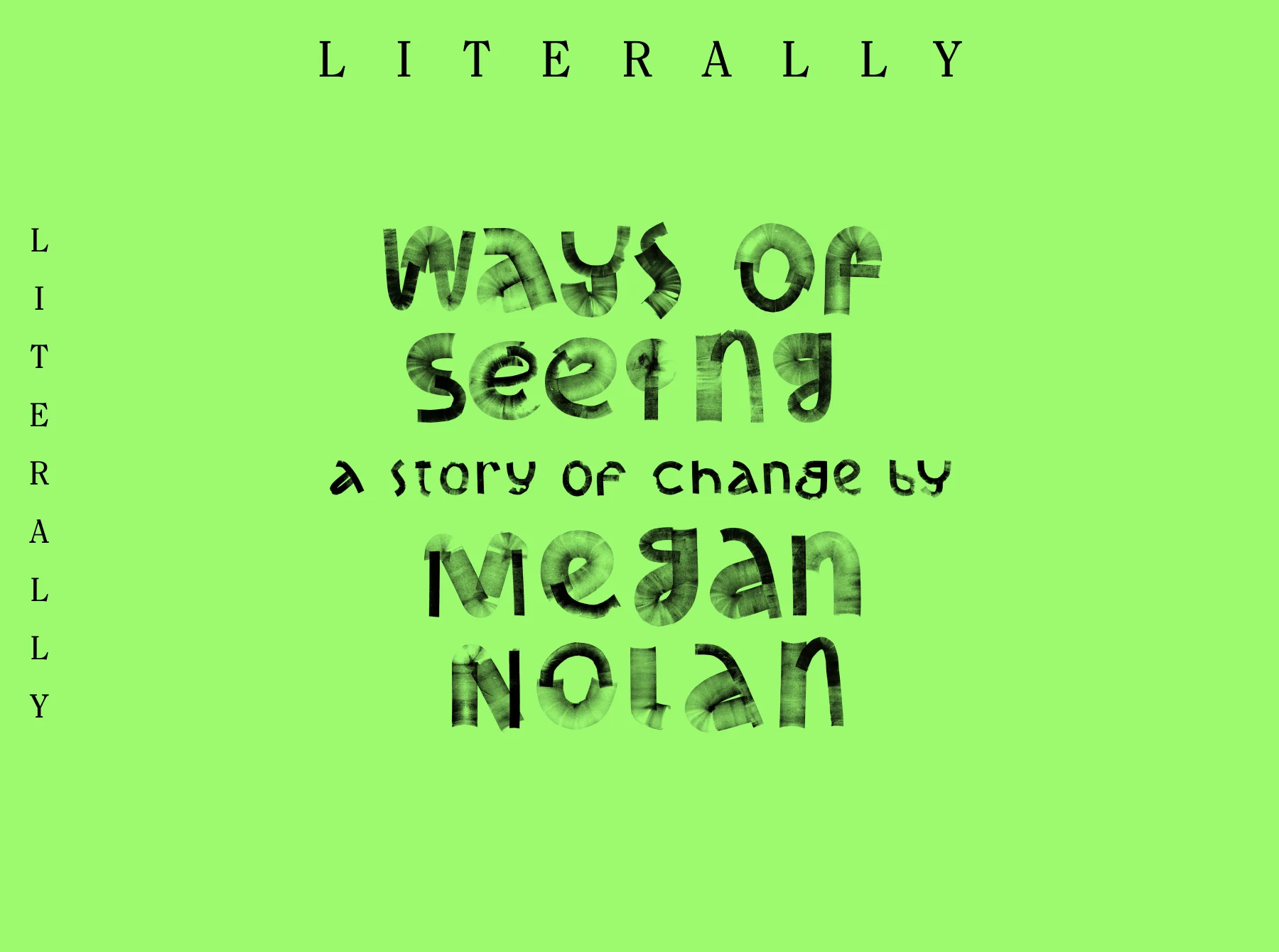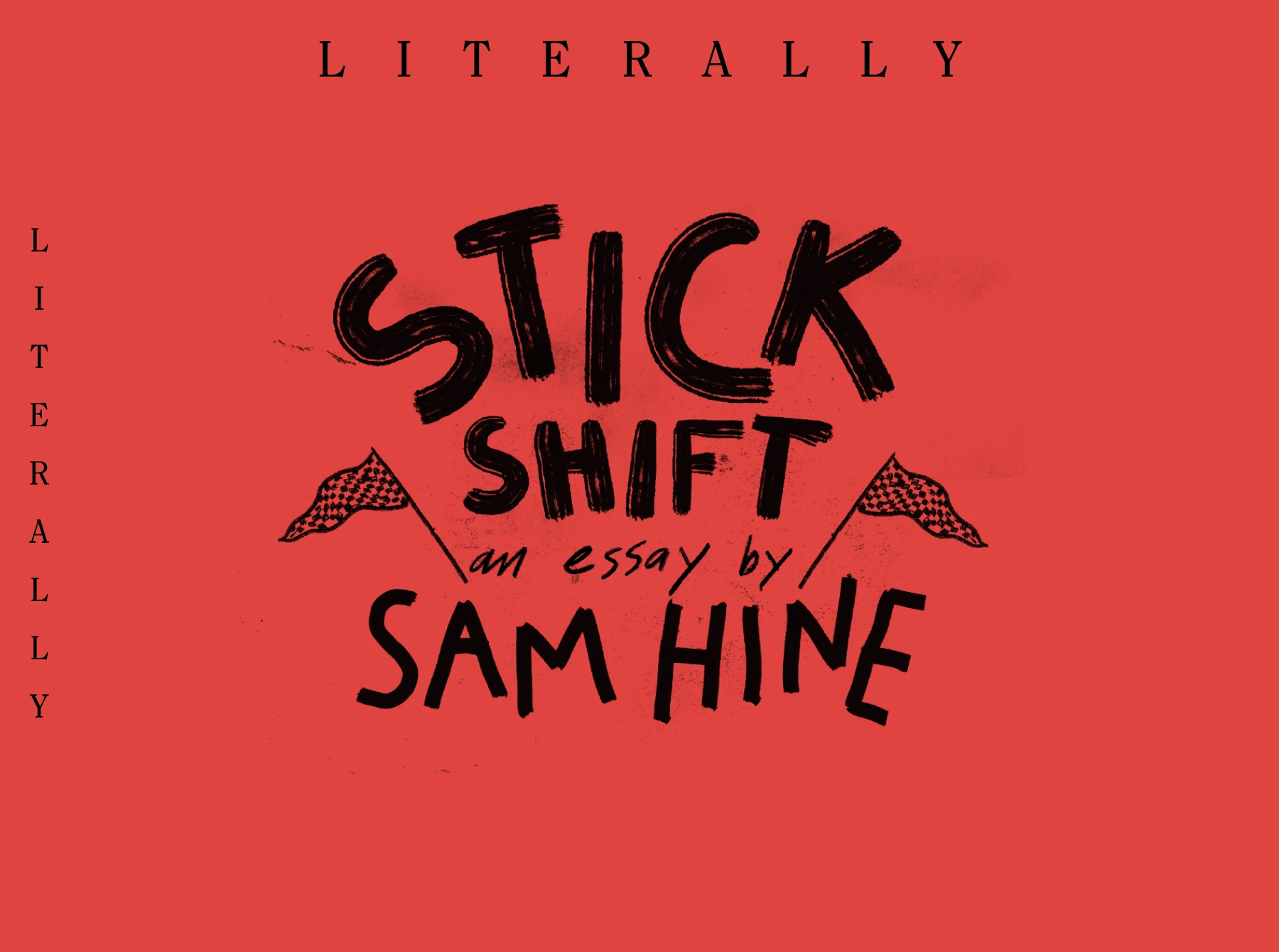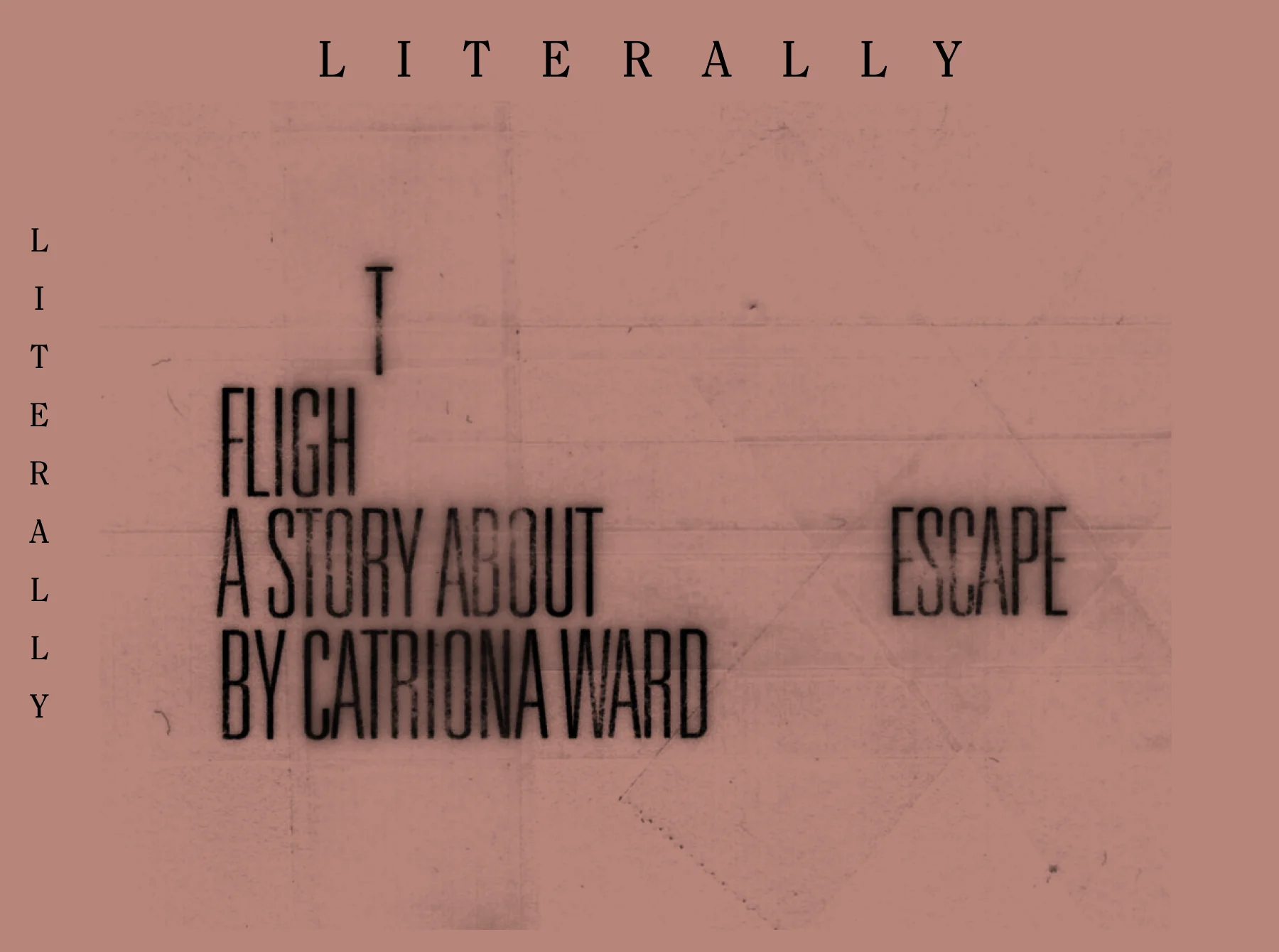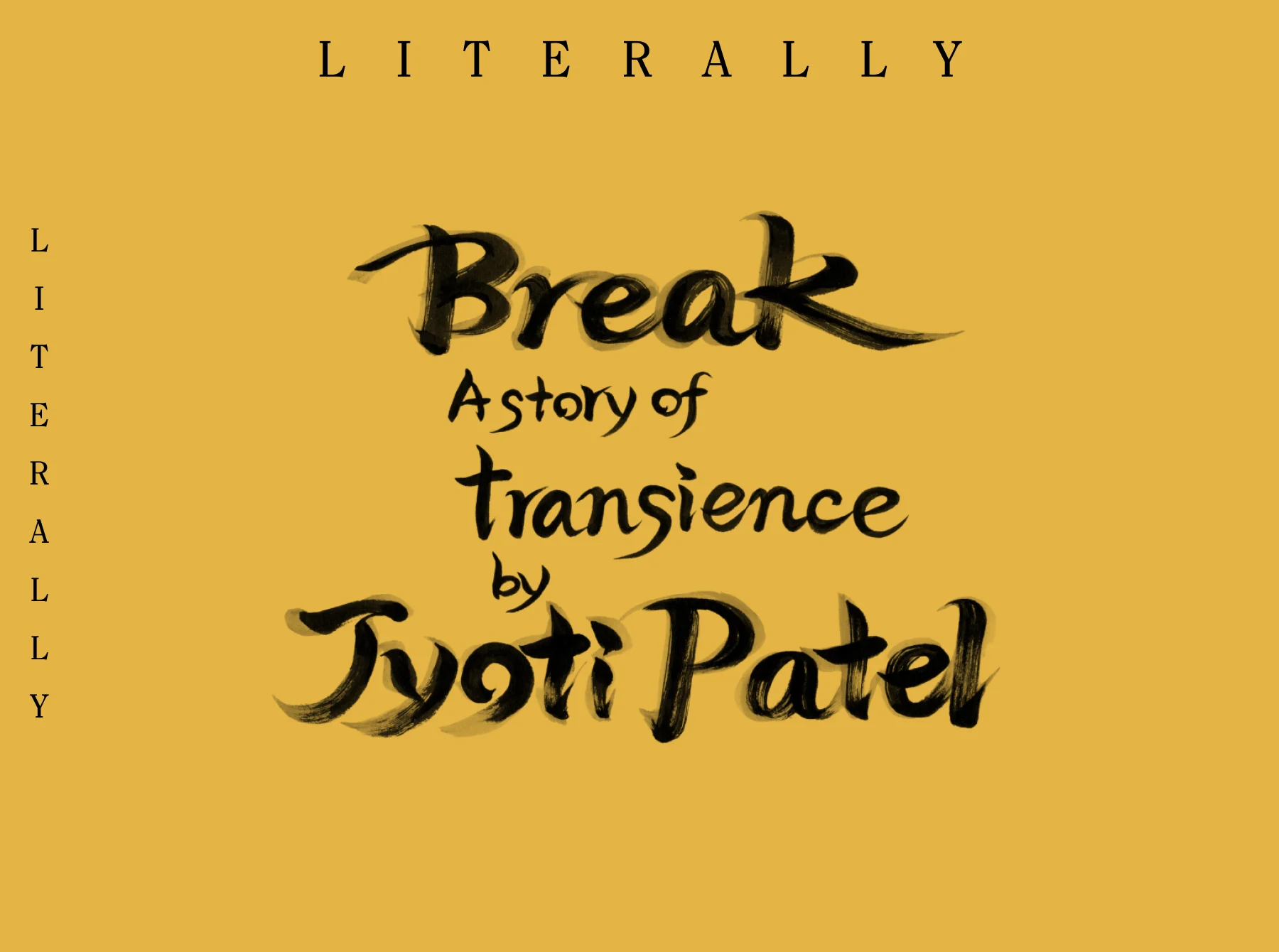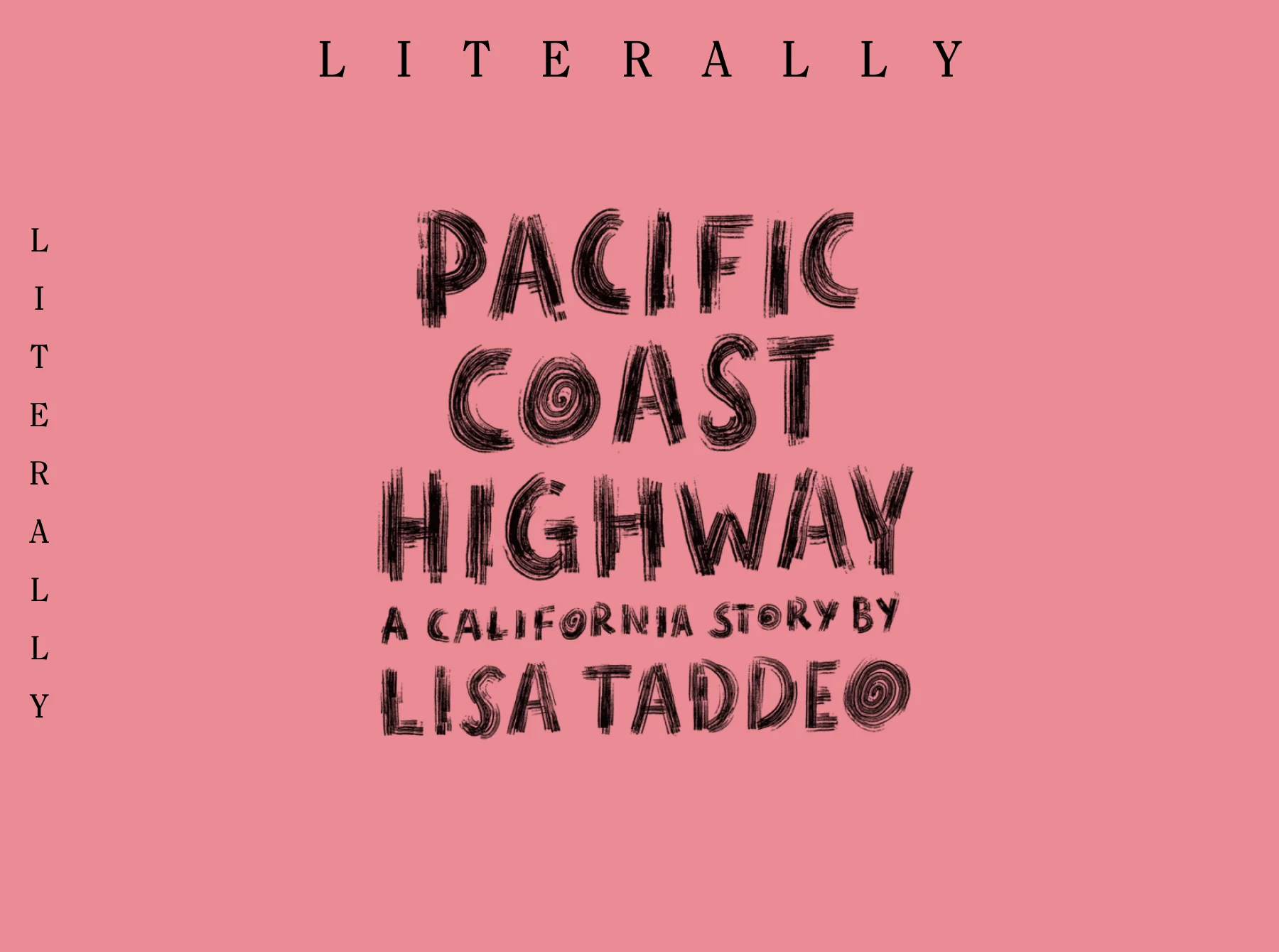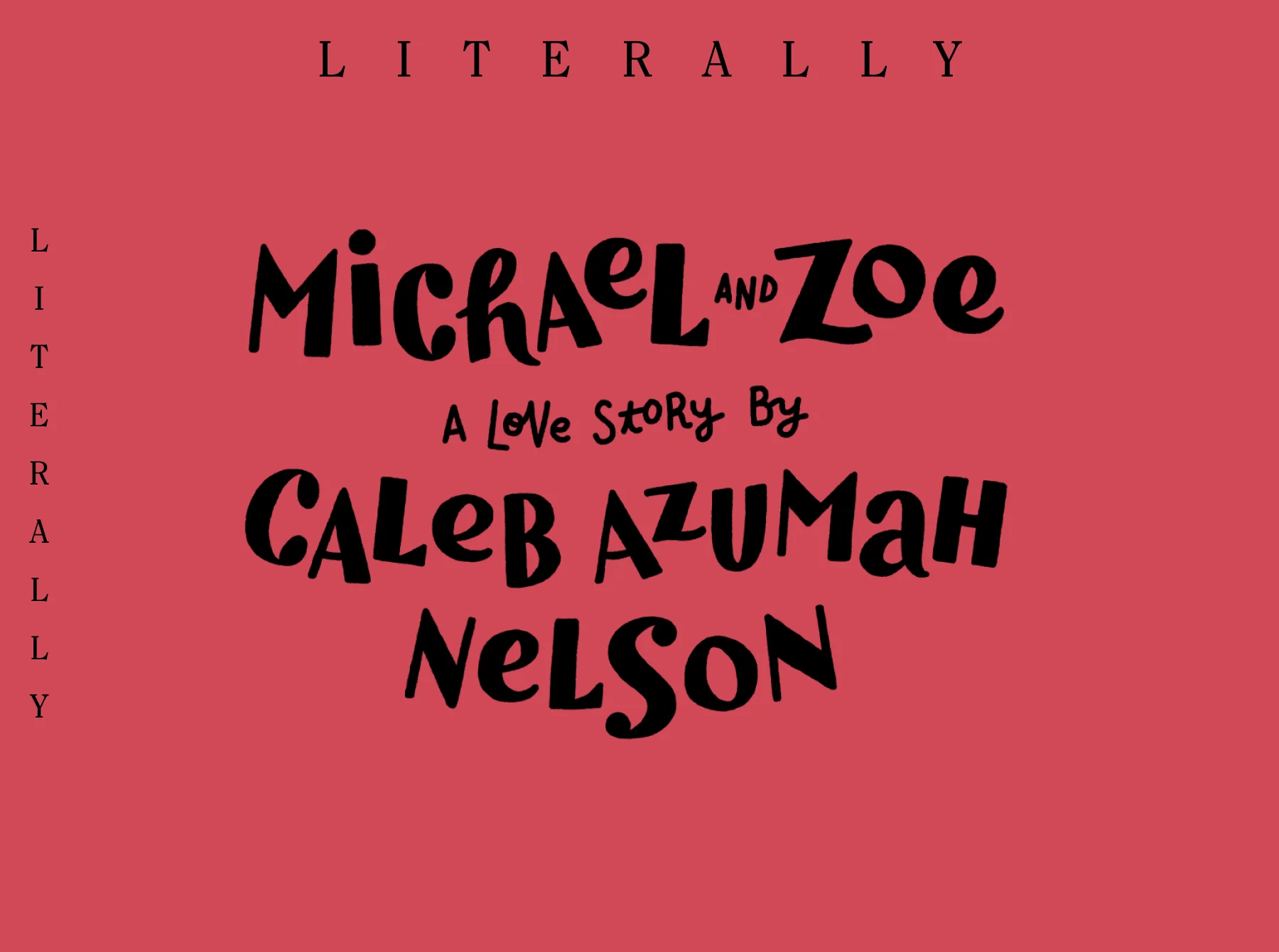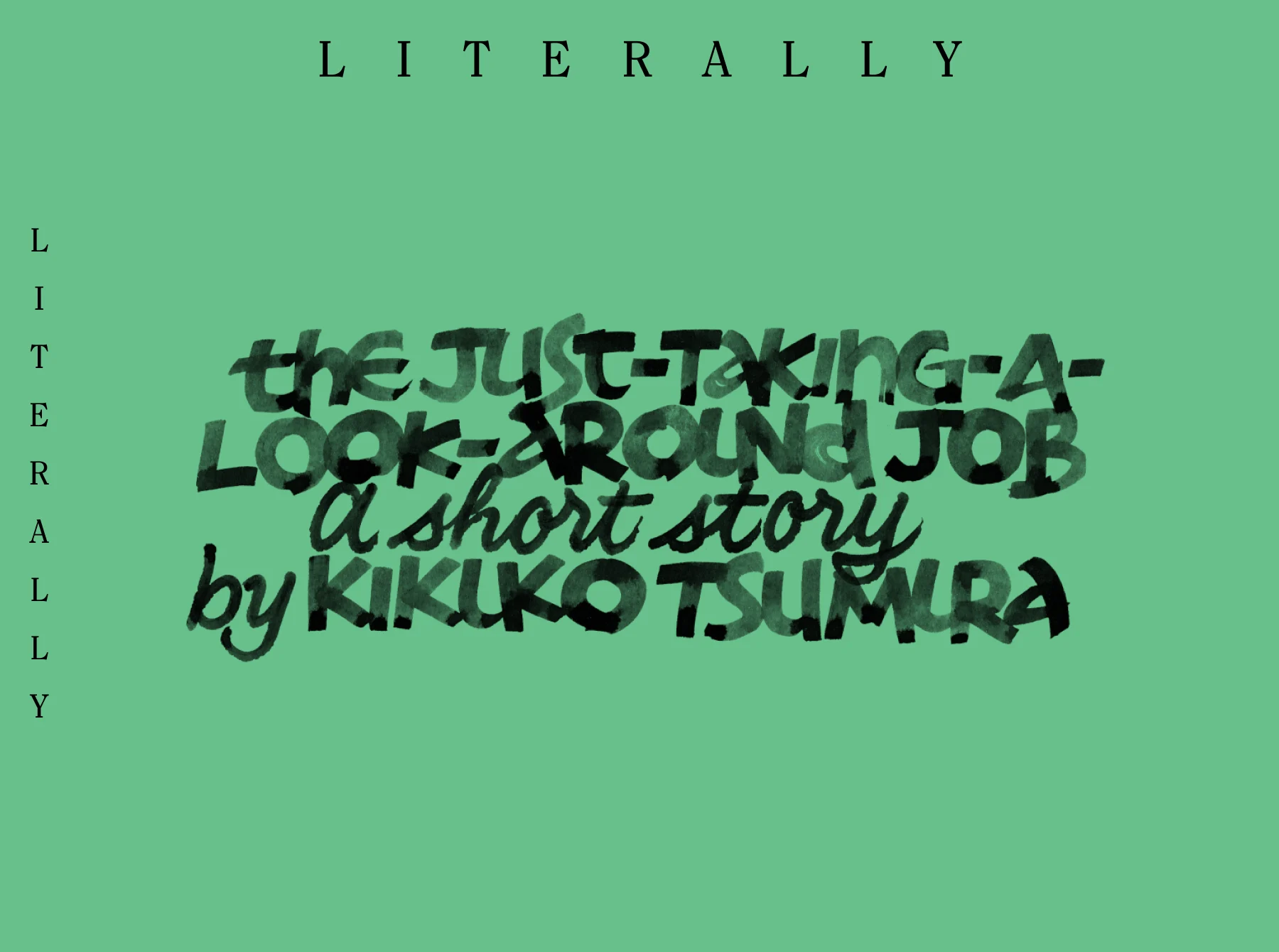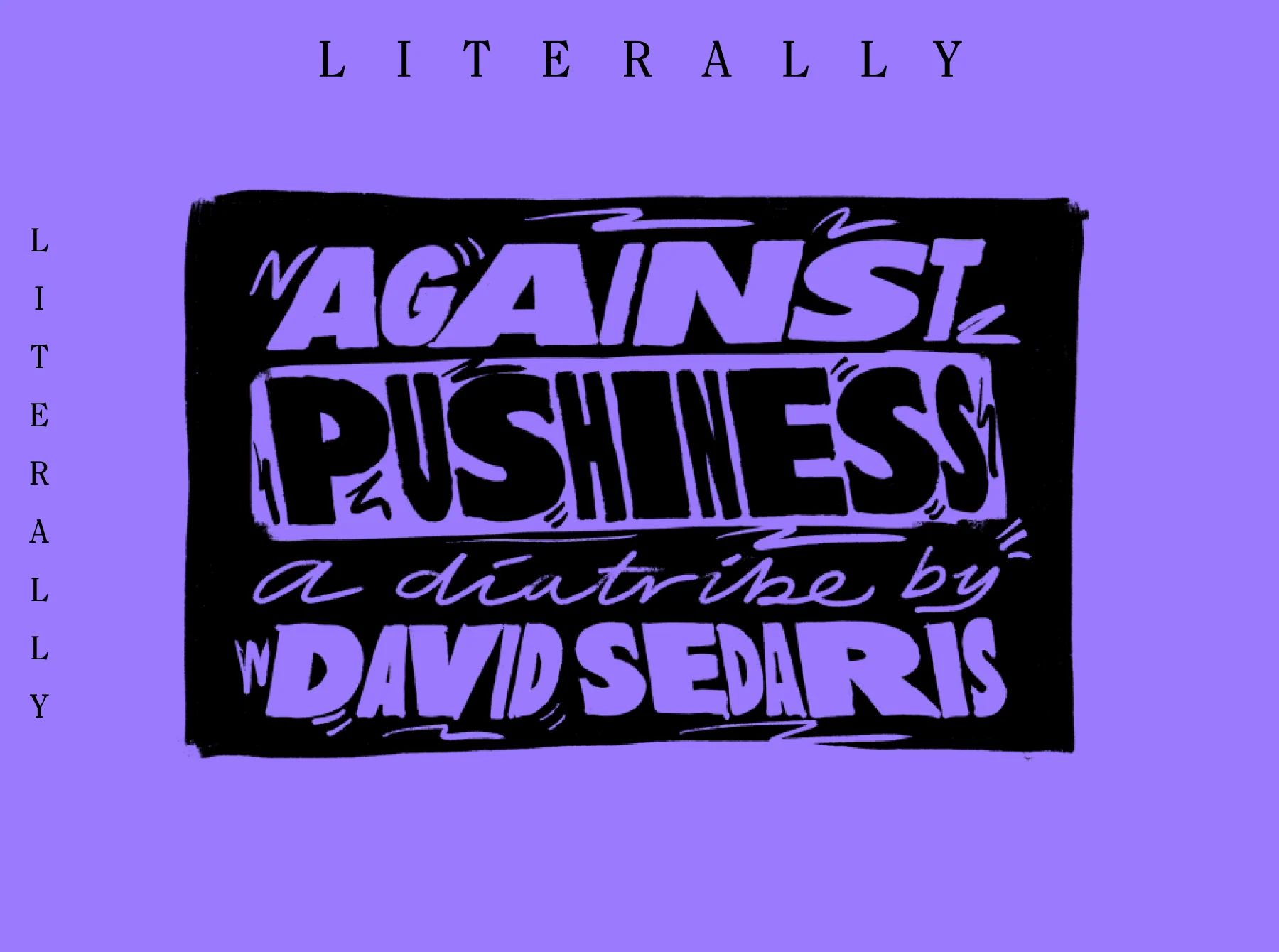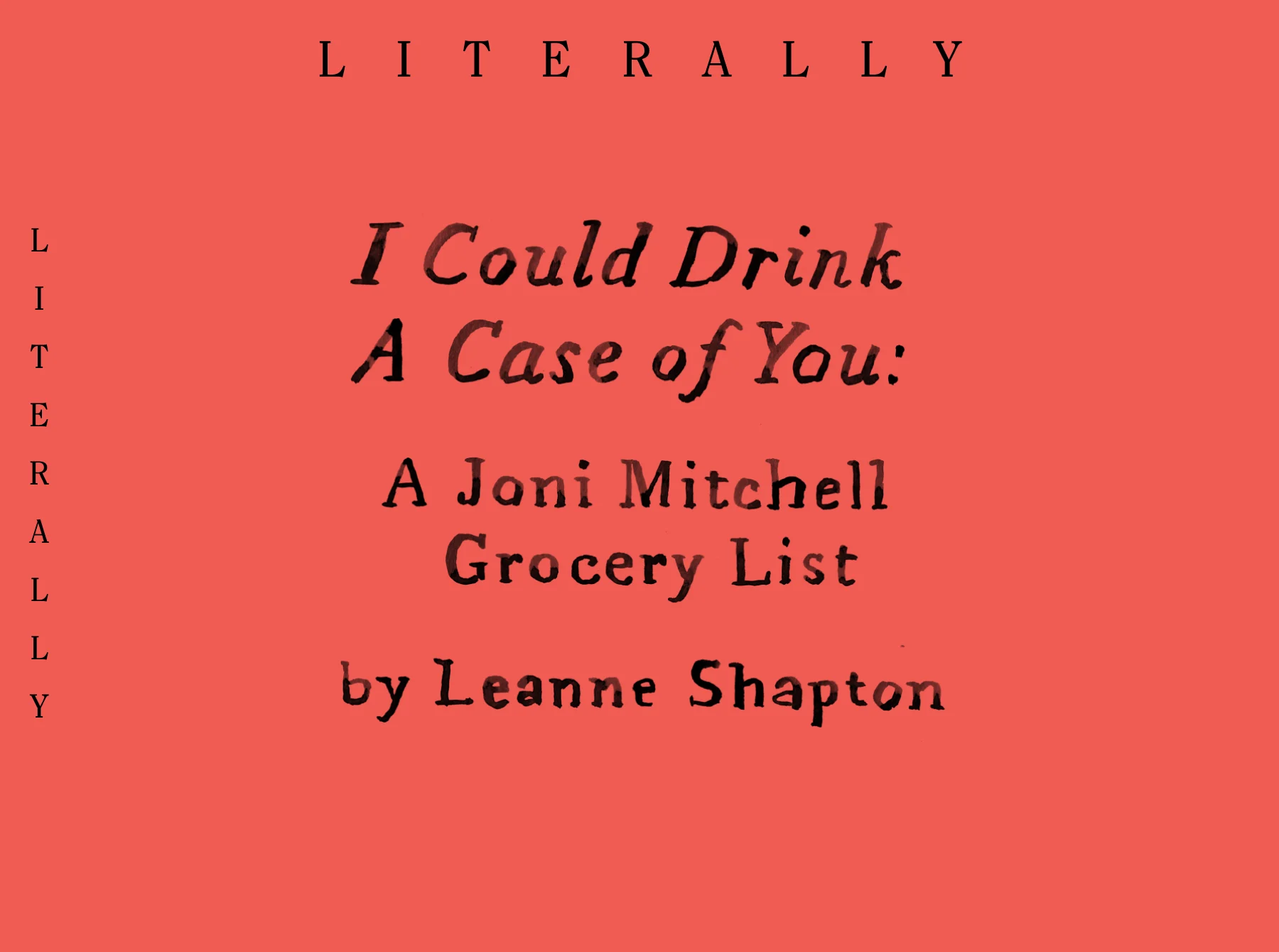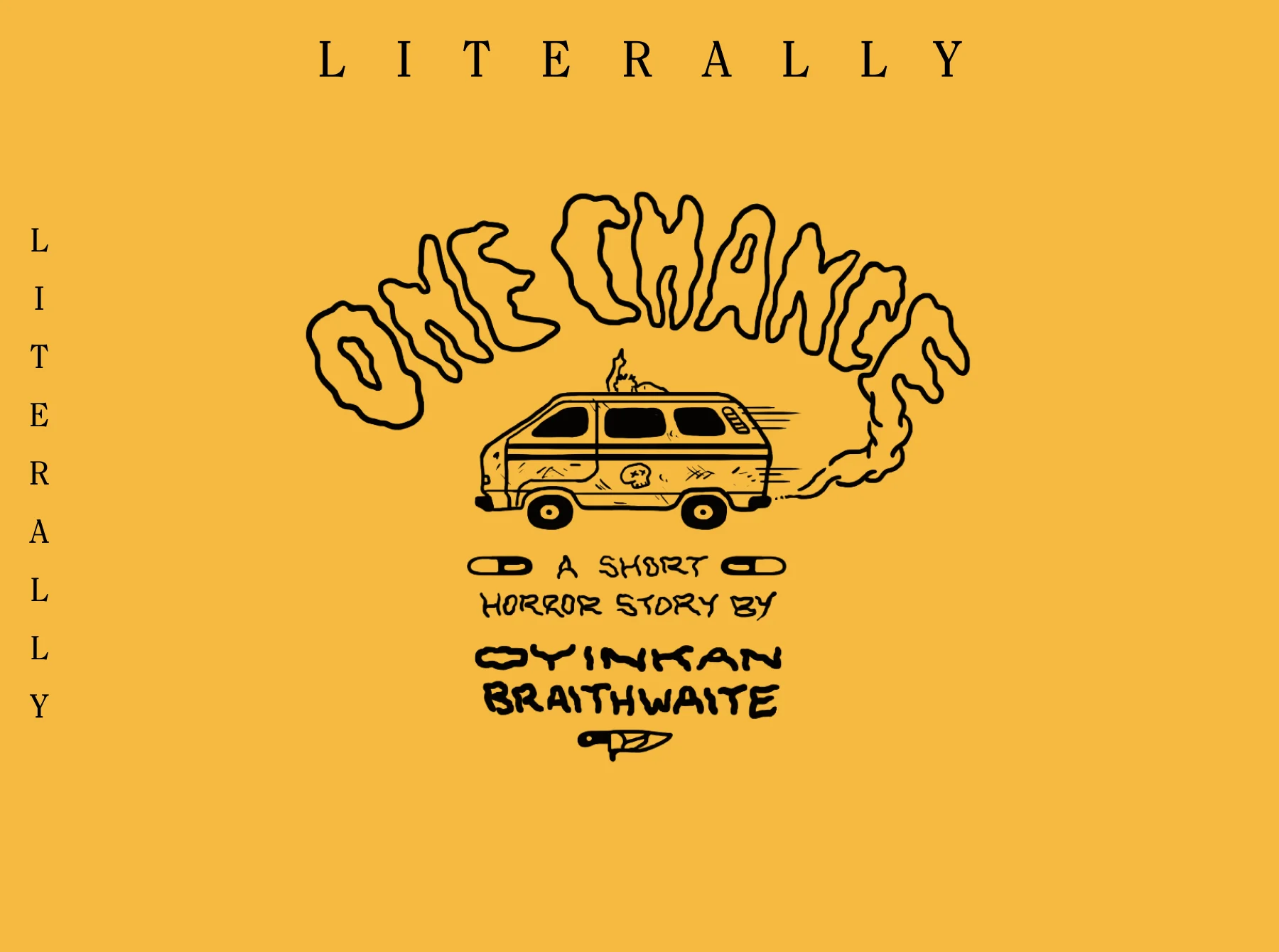

Robbie Robertson tells Martin Scorsese in his 1978 live music documentary The Last Waltz that The Band is calling it quits as they have nothing left to take from the road. “Maybe it's superstition,” he says, “but one doesnt want to press their luck on the road. The road has taken a lot of the great ones,” he explains, before listing off Hank Williams, Buddy Holly, Otis Redding, Jimi Hendrix, Elvis Presley and Janis Joplin as examples of those taken too soon by the lifestyle, ending with: “It's a goddamn impossible way of life!” to which Scorsese echoes off-camera back at him saying: “It is, isn't it?”

And I suppose it can be. Remember back in December 2016, when a fire broke out at a warehouse venue in Oakland called the Ghost Ship? I had never visited, but it was exactly the kind of venue in which mine and so many others' careers began. The fire killed 36 musicians and attendees who had been trapped inside. The following year, in 2017, I was sitting shotgun in a tour van passing through the American South when I learned that Jessi Zazu of Nashville rock band Those Darlins’ had passed away from cervical cancer. She was only 28-years-old. They had found the cancer too late, despite her not having felt well for a few years. She had often mistaken her illness for weariness from life on the road. The next year, 2018 brought the death of Anthony Bourdain who, though not a musician, was more of a rock star than most rock stars, spending his days travelling the outer edges of the world.
I read of his passing while on an airplane bound for France, the same country in which he had just been discovered hanging by the belt of his bathrobe in his hotel room. A few short months later, Richard Swift, who had produced my album City Music, died of complications due to alcoholism. I got the news on my way to the airport to begin a tour, and – because of said tour – was unable to attend the funeral a few weeks later. Then, in 2019, pioneering indie rock legend and one of my all time heroes, David Berman, on the verge of making his victorious comeback after a decade of reclusion, hung himself in his Airbnb while rehearsing in Brooklyn ahead of his first tour in nearly a decade. His death hit particularly close to home as he had outfitted his band with two of my best friends, who were with him on the morning he died. When a person sees the heroes of their field die tragically one after the other, a person naturally begins to worry they may someday suffer a similar fate if they, as Roberston put it, keep pressing their luck.
I took in the news of these deaths in a shock-like trance: more often than not while glaring down at the scorched earth from an airplane window, high above the weather, periodically touching the ground, but only to quickly ascend again. I recall thinking more than once, as long as I remain neither here nor there, but instead somewhere in between, I will remain untouchable, and thus I will remain invincible.

I’ve spent a lot of my life looking through windows, in transit. In the early summer of 2019 I found myself on a bus traveling through Europe. It had taken nearly 12 years of traveling by way of rental cars, mini vans, econolines and sprinters but at long last I had finally made it to the highest level of travel that every musician aspires to: The Nightliner. The shows were getting bigger, and the nights lasting longer, but It was here that I began to notice I was looking tired around the eyes in photographs and live videos. I had put on some alcohol weight in my face. Once I even overheard a promoter, who I had known for years, comment to a friend that the road was beginning to take a toll on me.
This came as no real surprise, though. I was well aware that I had been lapping at the fountain of youth for too long, and would inevitably begin to show signs of the weary world in which I was operating from within, just like all my heroes before me. And it was at that moment that I found myself romanticizing a lifestyle I had only ever once briefly known as an adult; a life not in constant motion. A life outside of The Tunnel in which I now spent most of my waking life.
“The Tunnel” is how I refer to the cyclical lifestyle my musical career has given to me. It’s an interactive numbers game based on collecting more money, more flyer miles, more cities, more shows, just quite simply more of everything. In The Tunnel you must race against time itself, dizzied by the ever-changing landscape and time zones while battling food poisoning, jetlag, hecklers, jealous friends, hotel staff, vertigo, highway patrol, border patrol, drug and alcohol addiction and more food poisoning. You are then rewarded with free drugs, alcohol, exotic meals, adoring fans, money, indie fame and status. To win in this game, is to simply survive. Each day alive is its own success and as far as you’re aware, there are only two ways out and that is to either die, or retire which, by the law of The Tunnel, are one and the same.
How did I find myself in this Tunnel?
When I was 17 I dropped out of high school and floated around my hometown of Kansas City for the better half of a year, before moving to Brooklyn shortly after my 18th birthday in 2006. Too afraid to fly, I bought a one way Amtrak ticket to Penn Station.
No one in my family had ever been to New York City before. My parents drove me to the train station one early morning in June, making a pit-stop at Wal-Mart beforehand to buy me a sleeping bag and some mace, should I ever need either. When they dropped me off at the ticket counter my mother had tears in her eyes as my father wished me good luck, both I’m sure, afraid that this would be the last time they’d ever see me, and that I’d inevitably end up the inspiration of a future Law & Order SVU episode.
I arrived a few days later at Penn Station wide-eyed. Back then, New York was a lawless playground for adults. You could make as much noise and cause as much trouble as you wanted and it’d simply go unnoticed, drowned out by the river of chaos happening all around it. I quickly made friends and found my way into the local music scene. Often I would stay up all night drinking bottles of wine on the Williamsburg waterfront, then a gravel pit that looked out at the city which illuminated the night like a kingdom in the distance. My life had taken the shape of a poem - and though I had no prospects, life skills, or future plans - I also had no worry I could think of. I was young and in love with a city for the first time.

A full two years later I had my first real break when asked to join a local band called Woods who were on the verge of indie stardom. Though ecstatic, joining Woods had caused some tension with my new best friend, Jamie, a well known musician around town who – though he was years ahead of his time – never quite got his due. Jamie was five years my elder and a native New Yorker who showed me his version of the city and was transparent from the beginning of our friendship about the fact that he was struggling with a heroin addiction, but saw my youthful energy as a positive force in his life that could help him get clean. The first few months of our friendship saw us often sharing his twin bed in his windowless room, sleeping head to feet, him asking me to keep watch over him and make sure he didn’t stay asleep too long after getting high. Many times I would have to shake him awake, and we’d rise before dawn and walk into the city to go on what he liked to call a “Manhattan adventure.”
Despite the dark undertones of his addiction, the nature of our friendship was incredibly childlike and pure. We were in platonic love and in the honeymoon phase of our friendship when I joined Woods, and though he encouraged me to do so, understanding this as a great opportunity for me, he showed resentment as I went on my first trip to Europe with the band. It was every American musician's dream, after all, to play outside of America and I somehow got there before he did. When I returned home our friendship resumed but he grew ever more dark as his addiction took a deeper hold of him.
On November 4th 2008, the night of the 56th Presidential Election, Woods was playing a kick off party ahead of our imminent west coast tour. When Barack Obama was announced to be the next president of the United States of America I took to the streets in celebration with the rest of Brooklyn while Jamie closed up shop at his video store job.

He called me on my flip phone to ask if we had played yet and to ask if he should come by. Out of breath, I told him to hurry over before snapping the phone shut as I continued to celebrate. When he arrived things were tense. “I know you don't have time for me anymore because of your band,” he said, “but don't ever hang up on me again.” But in a typical best friend fashion, a few hours later we made up and made plans to see each other the next day, before I left for the tour. On his way out he waved goodbye from across the room with a look that seemed to say “see you tomorrow.” It was the last time I ever saw him, as Jamie passed away early the next morning on November 5th from an accidental drug overdose.
Though devastated, I also understood that the universe had placed me at a crossroads. It was a pivotal moment for the band and I wanted to show my commitment and ensure my role by going on the tour, but knew that if I did, I would forever feel guilty for missing my best friend's funeral.
What would Jamie have wanted me to do? Or better yet, would Jamie do?
I slept in his bed the night before leaving town, knowing it would likely be thrown out by the time I got back, and in the morning headed for JFK. I cried the entirety of the flight to Seattle, listening to old demo tapes Jamie had given me, in complete shock that he was gone. But once I had landed, though still upset, I felt a new sense of freedom, confident that I had made the right decision. Be it to honor my departed friend, or for my own selfish reasons, I still couldn't tell you. But one thing I was sure of: I had committed myself to a life on the road above all else. Looking back now, I see this was the entry point of The Tunnel, and I would remain within it for many years to come.

Nearly a decade after Jamie’s death I reached a point I had only ever dreamed of, with four solo albums under my belt and another on the way. Always and forever inspired by a life in motion and the lives passing in my periphery, I had developed a knack for writing on the road. And so the more I toured, the more I wrote, and the more I wrote, the more I recorded. The more I recorded the more I released, and the more I released the more I toured. The more I toured the less I was home. The bigger the shows got, the more money I was able to put away and thus, a highschool drop out like myself who had no skills outside of music, never planned on ever saying no to any offer that was thrown my way, no matter how big or small, and to be on tour – essentially, all the time. Nothing could or would keep me off the road.
James Baldwin once said: “The world is full of rooms – big rooms, little rooms, round rooms, square rooms, rooms high up, rooms down low – all kinds of rooms!” And the same is true of venues.
The world is full of them. Big venues, little venues, round venues, square venues, venues high up, venues down low — all kinds! Some are beautiful, some are despicable, some are small, some are grandiose – some venues aren't really “venues” at all. When loading gear into an empty venue it feels as if you temporarily own the place. The room is all but empty save a few employees floating around and it is your job, in a matter of hours, to transform the room and bring it to life, filling it with bodies and marrying each soul to the stranger next to them until the crowd is unified as one. When entering a theatre I pretend that I am in the belly of a whale – its ribs, the beautiful interior, with ancient carvings from those swallowed up before me. When entering a dive bar I find great comfort in the smell of the alcohol rot from the night before, and the stench of the bleach to mask it burning my nostrils. I cherish both ends of the spectrum, but my favorite venue lies exactly in the middle, The Bowery Ballroom. And it was my goal, from day one, to someday be able to headline it.
Just big enough to feel grand, but just small enough to maintain its intimacy – it is the perfect room to both perform and experience live music. And in 2017, four years after deciding to go solo, with three albums out and a fourth on the way, to my own disbelief and astonishment, I was booked to headline. Upon walking in I felt the beautiful wooden room staring back at me and the band, and though it had seen thousands of others just like us walk through its front doors before, it felt warm and inviting. My band and I were now a part of its legacy, and a few hours later the room was full of people and I was overwhelmed with gratitude that we had created a campfire warm enough that people had wanted to gather around. I felt elated as their applause resonated off the old wood and floated down from the balcony. The world is full of venues, but we had transformed my favorite one, and watched it come alive.

Touring, though rigorous in its ways, can feel like passing through life's fast lane with the bumpers on. I have long and often wondered what, if anything, would get me to exit The Tunnel. My mental health? A vocal injury? A family member falling terminally ill? But in the end it was, of course, a global pandemic. A universal and collective uprooting of all of our lives that put an indefinite pause to the life of all touring musicians.
Confused, It was as if I had removed a pair of VR goggles to see reality for the first time in years only to find a stockpile of mail spanning the last decade warning me of funerals, weddings and birthdays all long past dead at my feet. Panicked by this harsh reality, I feverishly blew into the console that held The Tunnel, but to no avail. The game was temporarily out of service, and the newspapers informed me that it could be months, a year, maybe even two – before the game would resume as normal - leaving me no choice but to reach back into the archaic ways of the past long before the game ever existed and to attempt to live life as I once did, all those years ago.
I adjusted to life outside of The Tunnel quickly. At the beginning of quarantine, life seemed simple and sweet, despite the world’s foundation crumbling at our feet. I finally got to know my neighbors and felt like I was a part of a community.
My partner Katie and I taught ourselves how to cook and even planted seeds in a raised bed, our first ever attempt at a garden. My old life on the road seemed but a blurred image in my mind, abstractly mysterious and beautiful. My new life was like a still life painting – vivid, innocent and simple.
It is the late summer now. Each morning I walk out of my house to water my garden, which has now grown up past my chest. We currently have peppers, greens, cucumbers, basil and tomatoe plants all bearing fruit. I recently discovered a litter of bunnies, whose mother had built them a nest beneath the garden, burrowed in the soil, all squinting at the sun. After watering the garden I swim laps at a local pool, and from there I address some business before I work on music or paint until we cook dinner and watch movies or read until we fall asleep. The days, in theory, are still simple, vivid and blissful – though all atop a foundation of anxiety born out of watching the world burn from our various screens. The truth is that life on this end of The Tunnel bears little to no resemblance to the world I knew before entering it. Though if there is one comparison to be drawn between the two lives that I couldn’t help but notice it is: Unable to leave our spaces, and uncertain to what the future holds, we’re all left to explore the world the only other way possible – through art.
Often in interviews I am asked what it takes for one to become a professional musician and the answer is always many different things.
What does it take to get through a life spent on the road? An equal balance of talent, luck and determination is probably a good starting point. But the secret ingredient, of course, is that first and foremost - one must love the music. If not for the spirit of music guiding one by the hand, I, nor anyone else who does such a thing for a living, would show up as often as we do. And though I'm grateful for my quiet life in Kansas, I've never known one place to feel more like home than a stage in which I am sitting at a piano or holding a guitar, singing to a room full of strangers.
To succeed in The Tunnel, is to simply survive. To live another day, to continue. You never arrive at the dream, but rather ride alongside it,sharing the same space and time for a fleeting moment. I think often of departed friends, heroes and peers who have died before their time and I wonder what they would do if suddenly given another day on this earth. Would they find a way to play music? Would they be beckoned back to the lifestyle? To the road? There, of course, is no way of ever knowing this, but I like to think that I, and all of the rest of us out on the road,in whatever capacity, take these people with us everywhere that we go, embedding them into the fabric of song and continuing their legacy.

A few weeks ago I was asked to open a run of shows for my friend Nathaniel Rateliff at legendary venue Red Rocks in Denver, Colorado. Nathaniel and I were initially introduced by Richard Swift and since his passing have only grown closer to one another. The shows at Red Rocks had been booked last year but then cancelled with the lockdown, so I was pleasantly surprised to learn that they were back on – only now with a socially-distanced crowd. The amphitheatre, which usually holds a capacity of 9,000, was cut down to a mere 175. I took the stage the first night looking out at the sparse crowd, sitting as close to the front row center as possible while still spacing themselves out by six feet apart. It felt like playing a living room show inside a football stadium yet I was shocked at how the small crowds eager applause filled the entire amphitheatre. Perhaps it was the natural acoustics of the ancient red rocks, or perhaps they were just that happy to see live music again.
I began the set alone, but was joined halfway through by Katie and then later by Nathaniel and his 10 piece band. We played my last song of the night in this formation – Nathaniel, Katie and I all sharing verses on my song Beautiful Strangers. It must have dawned on us all collectively, that this was the first time any of us had played music in front of real people in almost eight months – an eternity for any touring musician. Happy to be alive and happy to be playing music, none of us could keep from smiling as the sparse crowd stood up and danced. Walking off stage, Katie locked her arm in with mine as the small crowd continued to cheer, looking me in the eye and whispering “we’re home.”

Kevin Morby is a musician, singer and songwriter. He grew up in Kansas City and left for New York at 18 where he joined a group called Woods and later co-founded The Babies. Now, 15 years later, he is a successful and prolific solo artist with six albums under his belt and more on the way. His emotive, narrative music, created with a range of collaborators, pines for lost friends, far away places and touches on religion, beauty and people. His latest album is called Sundowner. He lives in Kansas with his partner Katie.
If you enjoyed this piece, Kevin recommends you pick up a copy of Tell Me How Long The Train’s Been Gone by James Baldwin and Actual Air, a book of poems by David Berman. He also recommends you read Goodbye to All That: Joan Didion’s essay about having a relationship with, and then leaving New York.
Literally is WePresent’s slowly expanding library of written commissions by some of the best writers in the world.
The hand-drawn typography on this page was created by Daniel Wiesmann.


